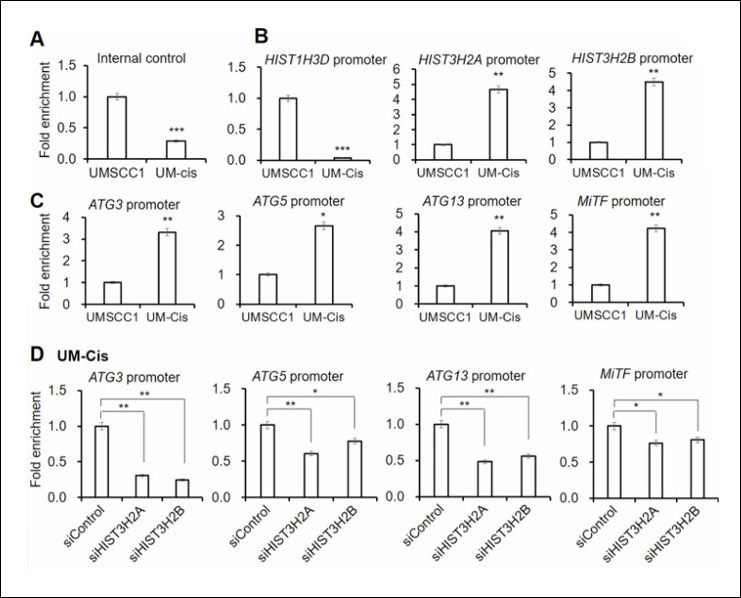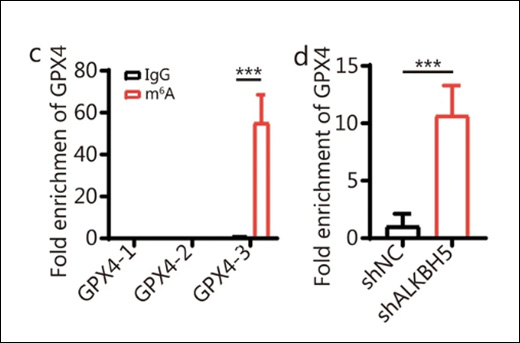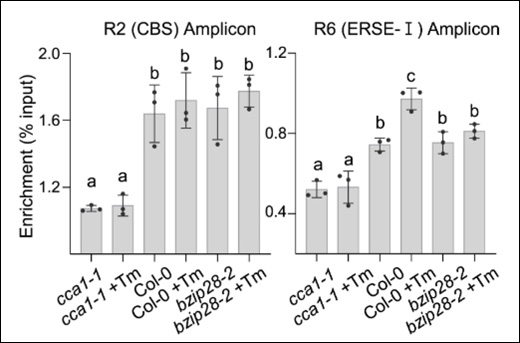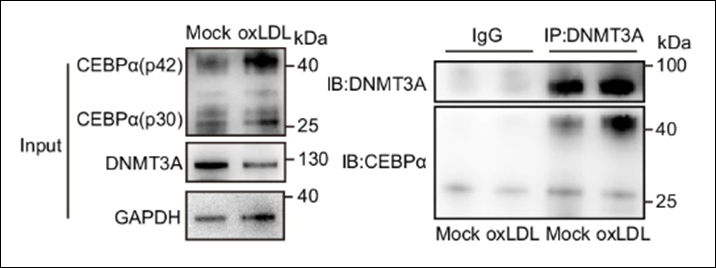Wang T et. al. (October 2023). Wogonin Diminishes Radioresistance of Breast Cancer via Inhibition of the Nrf2/HIF-1 Pathway Am J Chin Med. :1-20.
The article investigates the role of Wogonin (WG), a compound derived from Scutellaria baicalensis, in overcoming radioresistance in breast cancer. The study reveals that WG induces apoptosis in breast cancer cells and reverses radioresistance by epigenetically regulating the Keap1 gene, inhibiting the Nrf2/HIF-1 pathway, and suppressing protective responses, providing potential strategies to enhance the efficacy of radiotherapy for breast cancer.
Products Used: EpiQuik Nuclear Extraction Kit, Methylamp MS-qPCR Fast Kit, EpiQuik DNA Methyltransferase (DNMT) Activity/Inhibition Assay Kit, Epigenase HDAC Activity/Inhibition Direct Assay Kit (Colorimetric)
Manzer HS et. al. (October 2023). Identification of a DNA-cytosine methyltransferase that impacts global transcription to promote group B streptococcal vaginal colonization mBio. :e0230623.
This article explores the mechanisms of Group B Streptococcus (GBS) colonization in the female reproductive tract (FRT), a significant factor in adverse pregnancy outcomes and neonatal diseases. The study identifies and characterizes a DNA-cytosine methyltransferase (Dcm) that contributes to GBS FRT colonization by regulating genes involved in carbohydrate metabolism, transcription, adhesion, and mucin interaction, shedding light on the regulatory role of Dcm and key factors influencing GBS persistence in the FRT.
Products Used: MethylFlash Global DNA Methylation (5-mC) ELISA Easy Kit (Colorimetric)
Castillo-Navarrete JL et. al. (November 2023). Increased academic stress is associated with decreased plasma BDNF in Chilean college students PeerJ. 11:e16357.
The study investigates the physiological impact of academic stress on university students, focusing on brain-derived neurotrophic factor (BDNF) and global DNA methylation (G-DNA-M) as potential indicators. The findings reveal that heightened academic stress is associated with decreased plasma BDNF levels, emphasizing the need for tailored interventions to mitigate the physiological and psychological effects of academic stress in this population.
Products Used: MethylFlash Global DNA Methylation (5-mC) ELISA Easy Kit (Colorimetric)
Yu Y et. al. (November 2023). 3D Spheroids Facilitate Differentiation of Human Adipose-Derived Mesenchymal Stem Cells into Hepatocyte-Like Cells via p300-Mediated H3K56 Acetylation Stem Cells Transl Med.
The article explores the molecular mechanisms underlying the differentiation of hepatocyte-like cells (HLCs) from human adipose-derived mesenchymal stem cells (hADMSCs) in both 2D and 3D cultures. The study identifies that 3D differentiation activates ALB gene transcription through increased acetylation of H3K56, enhancing the phenotypes and functions of HLCs, with a crucial role played by p300, suggesting potential applications in liver regeneration and disease modeling.
Products Used: EpiQuik Chromatin Immunoprecipitation (ChIP) Kit
Liu S et. al. (October 2023). Hypothalamic FTO promotes high-fat diet-induced leptin resistance in mice through increasing CX3CL1 expression J Nutr Biochem. :109512.
This article explores the relationship between the fat mass and obesity-associated (FTO) gene and leptin resistance induced by a high-fat diet (HFD). The study identifies CX3CL1 as a direct downstream target of FTO-mediated N6-methyladenosine (m6A) modification, and the upregulation of FTO/CX3CL1 in the hypothalamus is linked to impaired leptin signaling, resulting in leptin resistance and obesity. These findings highlight FTO as a potential key mediator in the development of hypothalamic leptin resistance and obesity, providing new insights into potential therapeutic targets.
Products Used: EpiQuik m6A RNA Methylation Quantification Kit (Colorimetric)
Li J et. al. (November 2023). METTL3-mediated m6A methylation of C1qA regulates the Rituximab resistance of diffuse large B-cell lymphoma cells Cell Death Discov. 9(1):405.
This study investigates the role of m6A methylation in Rituximab resistance in diffuse large B-cell lymphoma (DLBCL) cells. The research identifies C1qA as a regulator of Rituximab resistance, demonstrating that METTL3 and YTHDF2 mediate m6A methylation of C1qA, and suggests that enhancing the response of the complement system through the regulation of C1qA could be an effective strategy to overcome Rituximab resistance in DLBCL.
Products Used: EpiQuik m6A RNA Methylation Quantification Kit (Colorimetric)
Li XH et. al. (October 2023). m6A modification associated with YTHDF1 is involved in Japanese encephalitis virus infection Vet Microbiol. 287:109887.
This study explores the role of N6-methyladenosine (m6A) modification, a common modification in mammalian mRNA and viral RNA, in Japanese encephalitis virus (JEV) infection. The findings reveal that the m6A reader protein YTHDF1 inhibits JEV proliferation both in vitro and in vivo, and its interaction with interferon-stimulated genes, particularly IFIT3, provides novel insights into the mechanisms of the innate immune response against JEV infection, suggesting potential applications in the development of therapeutics for controlling JEV infection.
Products Used: EpiQuik m6A RNA Methylation Quantification Kit (Colorimetric)
Chen Y et. al. (November 2023). METTL14-m6A-FOXO3a axis regulates autophagy and inflammation in ankylosing spondylitis Chen Y et. al. (November 2023).
The article investigates the role of m6A modification in ankylosing spondylitis (AS). The findings reveal that decreased m6A modification in T cells of AS is associated with the downregulation of METTL14, which, in turn, regulates autophagy and inflammation through the METTL14-m6A-FOXO3a axis, providing insights into the molecular mechanisms underlying AS and potential therapeutic strategies for the condition.
Products Used: EpiQuik m6A RNA Methylation Quantification Kit (Colorimetric)
Guo Q et. al. (October 2023). The effect on m6A methylation writer complex by the reduced MATR3 in pterygium Acta Histochem. 125(8):152101.
This article researches the pathogenesis of pterygium, a common eye surface disease, through RNA sequencing and reveals a significant reduction of the MATR3 gene in pterygium tissues compared to controls. The study further demonstrates the loss of interaction between MATR3 and the N6-methyladenosine methyltransferase complex, specifically WTAP, indicating potential implications for the transcription of target genes in pterygium.
Products Used: EpiQuik CUT&RUN m6A RNA Enrichment (MeRIP) Kit
Zhao R et. al. (November 2023). The m6A reader IGF2BP2 promotes the progression of esophageal squamous cell carcinoma cells by increasing the stability of OCT4 mRNA Biochem Cell Biol.
The study investigates the role of insulin-like growth factor 2 mRNA-binding protein 2 (IGF2BP2) as an m6A reader in esophageal squamous cell carcinoma (ESCC). The findings demonstrate that IGF2BP2, overexpressed in ESCC tissues and cells, promotes malignant phenotypes by increasing the stability of OCT4 mRNA, suggesting the IGF2BP2/OCT4 axis as a potential therapeutic target for ESCC.
Products Used: EpiQuik CUT&RUN m6A RNA Enrichment (MeRIP) Kit




 Cart (0)
Cart (0)













